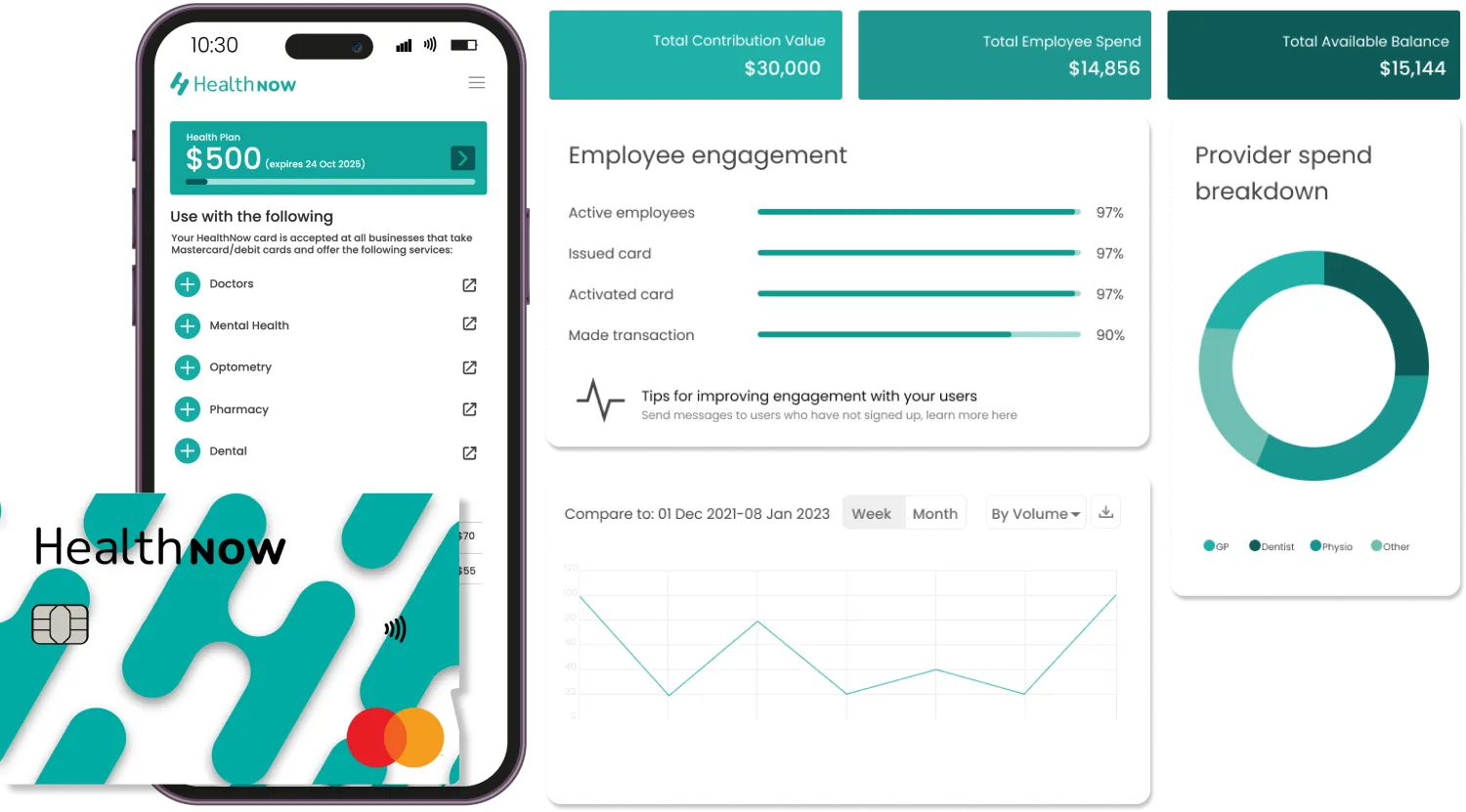The journey of being a private practice owner and going through the different seasons of business is one of great learning – but what is less often talked about, is that it’s one of great ‘unlearning’ too. That is, through their formative years, many people may collect beliefs about money and making money within the healthcare realm that they then have to work hard to “unlearn” in order to grow their business. This is especially true if you’ve entered the healthcare field at an early age from the mindset of dedicating your life and career to helping people and believing the money will just naturally follow.
The reality of private practice is that you need to be able to pay your weekly expenses, staff wages, pay yourself, and have enough funds to be able to reinvest back into the business in various ways – at the very least. And that doesn’t even include discussing profitability on top of that. In order to achieve this and reach your financial goals (not just your financial necessities), there’s an important place to start that is often overlooked: your money mindset. Here are five quick money mindset tips that may be a good place to start when evaluating your money mindset and moving towards greater growth and freedom.
- Replace Your Thoughts Around What “Price Increases” Mean
This one is for you if you feel nervous about raising your rates or appointment prices or end up with a lower price raise than advised by your accountants because you want to stay affordable for your current and future patients. On the one hand, it makes sense to want to make healthcare accessible to more people through your rates. On the other, with clinic rent, equipment, consumables and staff wage prices all increasing, what you’re actually doing is directly reducing both your business and personal profitability, so your clinic is left with less money for reinvestment, and you’re left with less money available to enjoy your downtime and balance the stresses that running a clinic can bring.
To help, we recommend replacing thoughts around “I have to slide my scale so patients can afford me” with “when I set my fee at a sustainable rate, I’m able to do better work, further invest in my team and my business, and can give back to my community outside of my practice.”
Furthermore, if you believe that you can’t just raise your rates without justification via additional training – stop. Try replacing “I need another certification so I can raise my rates” with “I practice within a niche and charge a speciality fee for my speciality work” or “they’re not paying for the training I’ve had this year, they’re paying for the knowledge, experience and training I’ve had for the past 10 years”.
- Redefine “I Didn’t Choose Healthcare To Make Money”
For many clinic owners, their journey into practice was inspired by selfless goals, morals and values. To help others, to deliver expertise that will save others from going through the health experience they or their family members went through, and to generally do good in this world. Because from an early age, aspiring to work in the healthcare field is seen as ‘good and noble’, and generally looked upon more gently than choosing to work in insurance sales, for example. This mindset that “you’re not in it for the money” is what stops many from striving towards pay increases and focusing on their profitability, instead telling others that they’re “people over profit”. While this is noble, try adjusting your mindset to acknowledge that both “I’m not in it for the money” and “I’m a very skilled practitioner and run a successful clinic that yields great health outcomes, and I deserve to be paid well for my hard work” can be true.
Clinic owners have a lot more stressors than employed practitioners, and the freedom that the financial return provides allows you to offset those stresses so that you can continue your clinic journey for the long term. Because if you ultimately decide to close your clinic doors due to burnout and financial stresses where your time and effort input doesn’t equal your financial output (and the quality of life that affords), then you’ll no longer be able to continue to support your patients.
Simply put: believe that you can make good money while also providing exceptional human-centred care and doing “good” in this world.
- Redefine The Hours And Circumstances In Which Money Can Be Made
Imagine two neighbouring clinics that have the same number of staff and facilities, same treatment prices, and same opening hours. They both bill the same revenue within their working hours, but in one clinic, the owner chooses to stay late every night and open early, and open on weekends so they can continue to see patients. They sacrifice their free time, outings with friends, family time – and they make more money.
When it comes to their tax returns, the clinic where the owner works overtime will make more money, simply because they worked more, as opposed to any strategic plans. But look at everything they’ve sacrificed over the years to do it – is it really worth it?
For this money mindset tip, we invite you to evaluate the hours and circumstances (and boundaries, really) in which you dictate that money can be made. If you’re working crazy hours and missing events to add to numbers on a page, consider other avenues to boost profitability within your clinic hours, so you don’t sacrifice the joys in life to get there. You can always make more money by working longer hours, but it’s not a sustainable way of working – or living.
- Re-Evaluate The Annual Turnover Number You Have In Your Head For Your Practice To Be “Successful”
Sometimes when it comes to finances, our worst enemy can be ourselves. In a world of setting goals and aiming higher and higher, we see many clinic owners who set a financial target from a source outside of a strategic business plan (perhaps a number that to them “feels” like success), and then feel down if they don’t meet it.
Our tip is to re-evaluate your business plan every year to better understand what is a realistic goal, and what success looks like to you. You may have made $50,000 less than you hoped for – but you retained all of your staff and reinvested into technology that is going to make your team’s life easier. That is also a success – and maybe even more so than hitting your target but having a high turnover rate (and associated training expenses) and not being able to support your team with the training or tech they need, contributing to lower team morale.
- Think Of The Outcome Of Your Investments, Not Their Expense
The final financial mindset tip is the way you look at your investments. It may seem unjustifiable to invest $10,000 into a new computer system, especially when your current one is fine or other new systems are available at a fraction of the cost.
Instead of asking how much the investment will cost, try asking yourself what your return will be. Could the $10,000 system save your team a certain amount of hours each week that over the year will justify that cost and free them up for the other business-propelling work you’ve been meaning to do but haven’t had time? Whether it’s new technology, professional training or leadership courses – always evaluate the outcome and how this fits in with your business plan instead of just looking at the upfront expense.
HealthNow: Meet Your Goals, Deliver Exceptional Healthcare
One business asset that is having a rapid uptake to both improve the bottom line for clinics while achieving a health professional’s goal of continuing to provide exceptional care and accessibility to their patients, is the integration of HealthNow into a clinic.
HealthNow is the world’s first buy now pay later platform that is dedicated entirely to the health and medical field, with a vision of making healthcare accessible for everyone the moment they need it – without being held back by the funds immediately available in their bank account. HealthNow also meets a higher level of compliance to ensure it operates with social responsibility in the healthcare sector.
Instead of paying the total cost upfront of an appointment, health consumers have the option to spread each medical bill into multiple interest-free instalments, over a maximum of twelve weeks. For health providers offering HealthNow, they get paid in full on the day the services are rendered by HealthNow. This means that your clinic is even more accessible without affecting your clinic’s bottom line – or that of your patients who get charged no fees or interest for the standard use of HealthNow.
Integrating HealthNow is free and easy – with only the setup time being a factor, making it a very worthwhile investment. Once you’re set up with HealthNow, you can also accept HealthNow’s employer aid payments, further supporting your business and your patients. Employer aid has significantly grown in popularity over the past 12 months, with many businesses and large corporations choosing to invest in the health of their staff by depositing funds directly into their employee’s dedicated health wallets. This gives employees full control over which health services they choose to access and when, as opposed to contributing a copayment towards a private health insurance plan that is often limited, restrictive, and has many exclusions.
Think of the health wallet as a digital bank account located within the HealthNow app that can only be used for health-related services and items, but does have the flexibility to be shared across family members – a significant advantage over other insurance options. By completing a free registration to be a HealthNow provider, once set up you’ll be able to accept payments from employer aid funds in real-time, much like a debit card. Employer aid funds have no expiry date so will be available for health consumers to use at any time, regardless of other financial or economic conditions.
To get started with HealthNow, simply register your company’s interest via this contact form and a HealthNow team member will get back to you promptly.







